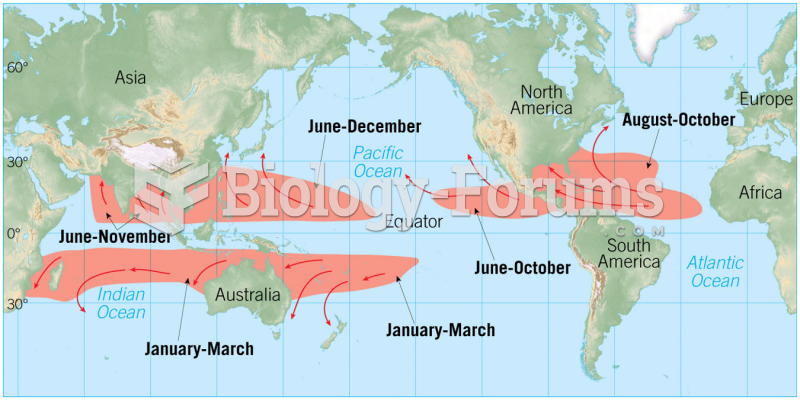|
|
|
Fatal fungal infections may be able to resist newer antifungal drugs. Globally, fungal infections are often fatal due to the lack of access to multiple antifungals, which may be required to be utilized in combination. Single antifungals may not be enough to stop a fungal infection from causing the death of a patient.
The first oral chemotherapy drug for colon cancer was approved by FDA in 2001.
Pink eye is a term that refers to conjunctivitis, which is inflammation of the thin, clear membrane (conjunctiva) over the white part of the eye (sclera). It may be triggered by a virus, bacteria, or foreign body in the eye. Antibiotic eye drops alleviate bacterial conjunctivitis, and antihistamine allergy pills or eye drops help control allergic conjunctivitis symptoms.
Medication errors are more common among seriously ill patients than with those with minor conditions.
Opium has influenced much of the world's most popular literature. The following authors were all opium users, of varying degrees: Lewis Carroll, Charles, Dickens, Arthur Conan Doyle, and Oscar Wilde.
 Arctic and alpine cushion plant form and orientation increases heat gain from sunlight and the surro
Arctic and alpine cushion plant form and orientation increases heat gain from sunlight and the surro
 Devil facial tumour disease causes tumours to form in and around the mouth, interfering with feeding
Devil facial tumour disease causes tumours to form in and around the mouth, interfering with feeding





